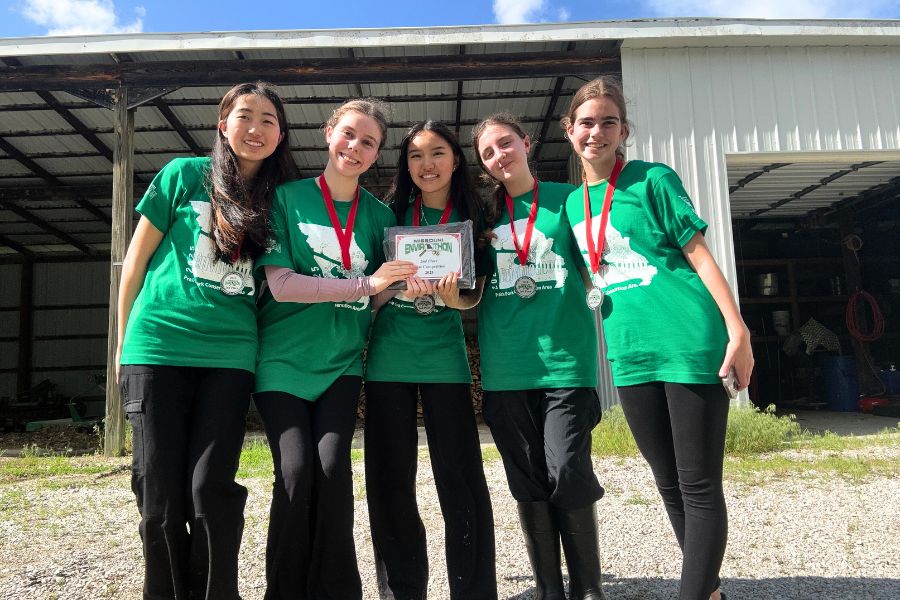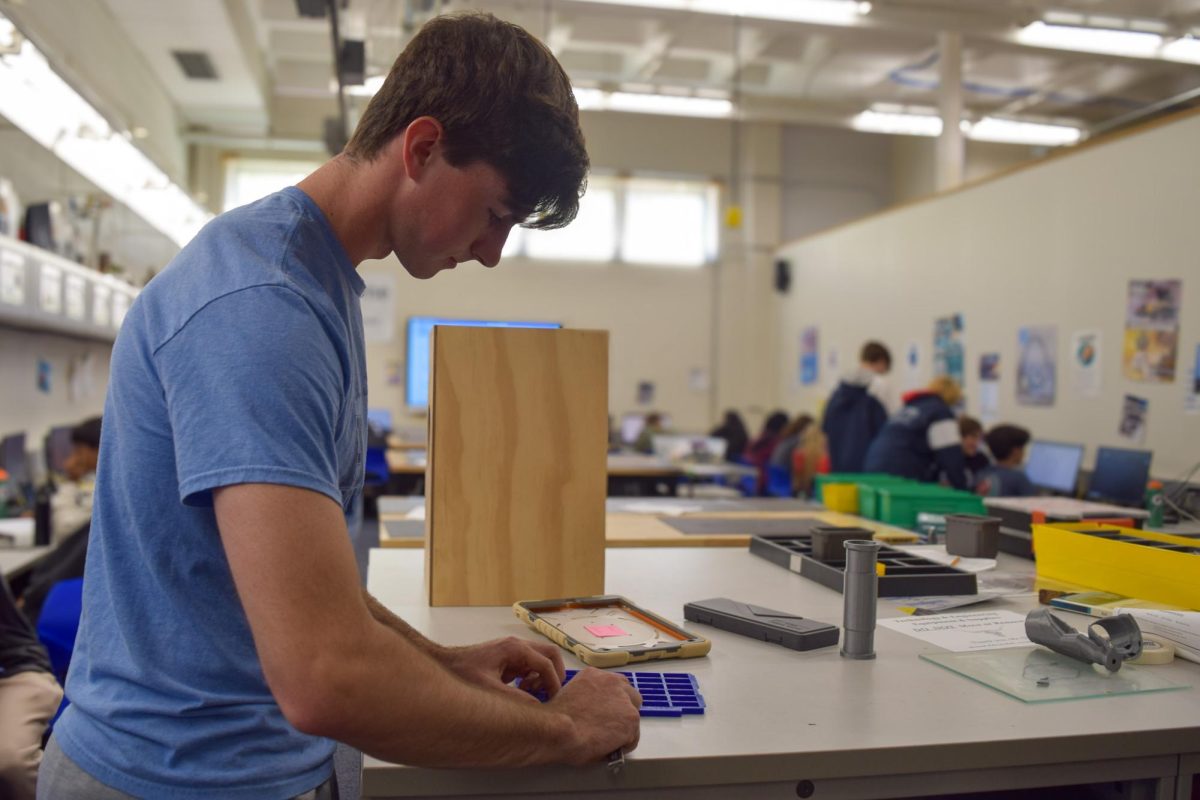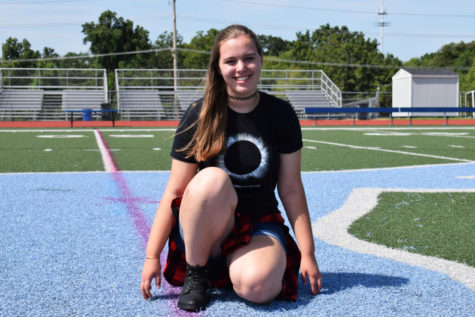Players crack their knuckles in preparation for the big game. A win in amateur leagues could mean a scholarship or a big pay day. One local competition had $40,000 to dish out to the victors. This may sound like a scene before a baseball or soccer championship, but it is not.
Senior Airi Murray is a major fan and player in eSports, or competitive video gaming community, specifically Counter-Strike: Global Offensive (CS:GO) and League of Legends.
“When it comes down to it, what gets me hooked on it is adrenaline,” Murray said. “When you play with your team and your friends, it’s almost like you’re getting into a certain level of competition. You really want to win and it’s really fun to be in that environment.”
Each eSport team typically has five players, two substitutes and a manager. A match consists of 30 rounds, which allows for ties, causing extremely long competitions. Murray was even able to take a nap in the middle of a match and still catch the end of the game several hours later.
“Too much of everything is just a bad thing. There are stories [about people] who have played for 70 hours straight, and when they stand up, they just die from cardiac arrest,” Murray said.
Murray has participated in two amateur-level competitions, both in CS:GO. The highest Murray has placed is third in a Local Area Network (LAN) party competition.
“Both times, we did not have a real team; we were messing around and having fun. We didn’t place well in those. That’s mostly just from the lack of practice,” Murray said.
During her underclassman years, Murray practiced upwards of 70 hours every two weeks, the equivalent of a full-time job. As a senior, she has decreased her hours to around 14 hours per week so she can focus on her studies.
“It’s hard to balance five or six hours of practice on top of going to school,” Murray said. “That is why so many players drop out of school to go pro. Professional players, even if they did drop out, say that you shouldn’t because once you retire, you have nowhere to go.”
Murray met one of her best friends through the community; he is a gamer from Toronto, Canada. She also moderates fan chats, the main one being focused on the major league in Korea for League of Legends. It currently has nearly 80 active members, and she hopes to double that number by February.
“There’s a stigma around the eSports community that it is super toxic, sexist, racist and all these horrible things. There are racist people out there, but in my experience, this community helped me meet some of the greatest people,” Murray said.
Murray also participates in Spark!, focusing her project around bringing eSports to St. Louis.
“We are hoping to run an event with an actual prize pool by April or May with collegiate teams in the area. After we do that, we will branch out to other parts of America that do not have it. We want to be a big event organizer,” Murray said. “We want a lot of exposure for eSports.”
Currently, Murray works in smaller, amateur competitions though hopes to at one point become a pro player or manager. At the professional level, games are held in giant arenas in front of tens of thousands of people, as well as being broadcasted on major sports channels such as ESPN. A current debate has blown up online, with critics arguing about whether eSports is actually a real sport and whether it should be broadcasted on major sports networks.
“I think people who are mostly opposed to it are those who don’t know anything about it and don’t accept change. They don’t want to turn on something new. Plus, ESPN also broadcasts poker and a spelling bee,” Murray said.
Another argument supporting eSports as a sport is that a crucial aspect of gaming is communication and teamwork. In a highly competitive game, tilting, or frustration that ruins your focus, can become detrimental to winning in such a social setting.
“It’s actually a pinball term. When you’re upset, you’ll try to tilt the machine to change the ball,” Murray said. “[In eSports,] you just sit there, not talking to anyone, just seething and giving everyone the death stare. It hasn’t happened to me yet, but it has happened to some of my teammates.”
Still, Murray goes by the screen name “tilted_airi” as a nickname on Twitch. She streams as often as possible to her roughly 60 followers.
“Sometimes when I’m not feeling it, I will stream with a friend for just an hour or two then do homework. When it’s raining, cold and dirty out, after I’ve finished homework, I’ll stay in and stream for eight hours,” Murray said. “Scientifically, gaming doesn’t help you feel better. What it does is it helps me have a sense of community and belonging.”
Although she is not competing this year, Murray plans to try out for Maryville University’s CS:GO team. She also hopes to attend Fragadelphia, a CS:GO competition in Philadelphia, next year. After college, Murray hopes to continue her career in gaming and to eventually take on the professional leagues as either a manager or a player as she loves the eSports community.
“I’ve made more friends online through gaming than I ever thought was possible. People say that online friendships will never be the same as people you meet in real life, but I can tell you that’s a lie,” Murray said. “Step into one of the games. Hop into a stream. I would definitely recommend that people check it out.”

![Senior Airi Murray leans over the keyboard while in the midst of an amateur competition. Murray hopes to one day join the big leagues with a team of friends. “You’ll have a [competition] and it’s almost like just friends hanging together with a prize pool,” Murray said.](https://pwestpathfinder.com/wp-content/uploads/2017/11/unnamed-1-1-3-900x600.jpg)

![Focused on providing exceptional service, sophomore Darsh Mahapatra carefully cleans the door of a customer’s car. Mahapatra has always believed his customers deserve nothing less than the best. “[If] they’re trusting us with their car and our service, then I am convinced that they deserve our 100 percent effort and beyond,” Mahapatra said.](https://pwestpathfinder.com/wp-content/uploads/2025/10/DSC_0018-1200x800.jpg)
![Sophomore Aleix Pi de Cabanyes Navarro (left) finishes up a soccer game while junior Ava Muench (right) warms up for cross country practice. The two came to Parkway West High School as exchange students for the 2025-2026 school year. “The goal for the [exchange] program is to provide opportunities for both Parkway students and our international exchange students to learn about other cultures, build connections and become confident, capable, curious and caring — Parkway’s Four C’s — in the process,” Exchange Program Lead Lauren Farrelly said.](https://pwestpathfinder.com/wp-content/uploads/2025/10/Feature-Photo-1200x800.png)

![Gazing across the stage, sophomore Alexis Monteleone performs in the school theater. The Monteleone family’s band “Monte and the Machine” has been releasing music since 2012, but Alexis started her own solo career in 2024 with the release of her first single, Crying Skies. “My whole family is very musical, [and I especially] love writing [songs with them],” Monteleone said.](https://pwestpathfinder.com/wp-content/uploads/2025/09/DSC7463-1200x798.jpg)
![Amid teaching a lesson to her AP Calculus BC class, Kristin Judd jokes alongside her students in their funny remarks. Judd has always enjoyed keeping the mood light in her classroom, along with on the volleyball court. “[I enjoy] that side talk where you see [or] overhear a conversation and chime in, or somebody says something funny,” Judd said.](https://pwestpathfinder.com/wp-content/uploads/2025/09/image-1200x730.jpg)
![Eyeing the ball, junior Ella McNeal poses for her commitment pictures at Clemson University. McNeal’s commitment comes after months of contact with top Division 1 soccer programs. “ It has taken a lot to get to where I am, but I know that [what] I've already been through is just the beginning, and I can't wait for what is to come,” McNeal said.](https://pwestpathfinder.com/wp-content/uploads/2025/09/IMG_4926-1200x900.jpeg)


![Senior Adam Zerega stands with senior Dexter Brooks by farm equipment. Zerega often worked with friends and family on his farm. “I've been able to go to my family's farm since I was born. I [spend] at least three weekends a month [on the farm], so I'm there all the time,” Zerega said.](https://pwestpathfinder.com/wp-content/uploads/2025/04/IMG_4872-1200x900.jpg)

